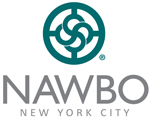M/WBE (Minority/Women Business Enterprise)
For women business owners, access to capital should not just for debt financing, but it should also include access to procurement opportunities. Multiple disparity studies showed significant disparities in contracting opportunities for women and minority owned business. As a result federal, state and city M/WBE programs have been put into effect to address these disparities.
Why the M/WBE programs and certification are important:
The underpinnings of all these legislations include that women and minority owned businesses are the engines that drive our economy and their goods and services should be reflected in city, state and federal government contracting.
According to the US Census Bureau, women owned firms are a growing and an important base for the US economy. In the US there are 27M firms with over $30B in receipts. Of this 7.7M women owned contributing nearly 1.2 billion in receipts. New York accounts for the third largest state with women owned firms. We account for 7.6 percent of all women-owned firms, and 7.1 percent of receipts. That we make only 2.4% of the New York City’s procurement budgets demonstrates that New York City’s spending on its local economy is amiss.
In 2005, NYC Mayor Bloomberg enacted Local Law 129 to promote contracting opportunities in NYC. NYS and the federal SBA all have enacted M/WBE programs to address these issues. Eligibility Requirements for M/WBE Certification:
-51% owned and controlled by one or more women who are US citizens
-A woman must manage the day-to-day operations and make long-term decisions and hold the highest officer position in the firm
Current Activities
• April 2011, census puts out new economic numbers
• Beginning Feb 4, 2011 the Small Business Administration is allowing contracting officers to set aside certain federal contracts for certified women owned business. The past 5% federal program goals were never implemented or enforced.
• In an initiative to promote transparency and spotlight the MWBE program, in January City Comptroller Liu launched the M/WBE report card www.mymoneynyc.com that allows all New Yorkers to check in real time how the City is spending its money—including on M/WBE’s. You can learn for example that of 78 agencies M/WBE share is 2.4 % non-M/WBE $17.4 billion (excludes payroll dollars procurement) total city spending $78.1B
NYC Where you can get assistance and apply for M/WBE certification:
SBS: NYC Department of Small Business Services
What they offer: One-on-one counseling as well as numerous certification workshops. They are located in the five boroughs.
Local Economic Development Centers
What they offer: These are non-profit centers designed to promote the economic growth and development of specific areas around the five boroughs through various incentive programs designed to facilitate access to capital, affordable workspace, support for innovation and marketing opportunities.
Procurement Fairs are put together regularly by local economic development centers, NYC and State small business departments. Join the NAWBO NYC twitter to learn about upcoming NYC procurement fairs.
Why M/WBE advocacy is critical:
• New York has over 2 million women owned firms— only 578 are certified as women owned. While the process has been made easier through multiple assistance and training workshops offered monthly throughout the boroughs, it is not a uniform certification—many of the agencies such as MTA, Port Authority, School Construction Authority (to name of few) all have their own program and that does not have reciprocity with the city or the state programs.
• Most women business are small firms—City and State contracts are designed to keep out small firms through requirements in bonding, financing, and insurance. Agencies may require certain number of full time employees or annual level of spending—as a policy not based on the level or type of contract.
• Marketing of contracts is greatly improved by the agencies, but the procurement process is fraught with complexities. Contracts are bundled so that projects that could be eligible for smaller firms are combined with larger sometimes unrelated projects.
• Time line for submitting highly competitive bids is so tight that larger contractors do not have the time to seek M/WBE’s to include and participate in these contracts.
Since the procurement process varies by industry there numerous other problems based on the type of industry, this is just a quick snapshot of some of the issues women businesses face. The end result is that firms are not getting certified and those that are not getting contracts.
There are numerous organizations that include NYWA member organizations who advocate for the success of the NYC and NY State M/WBE program. Efforts to promote and enforce the M/WBE program are an important ongoing process.

